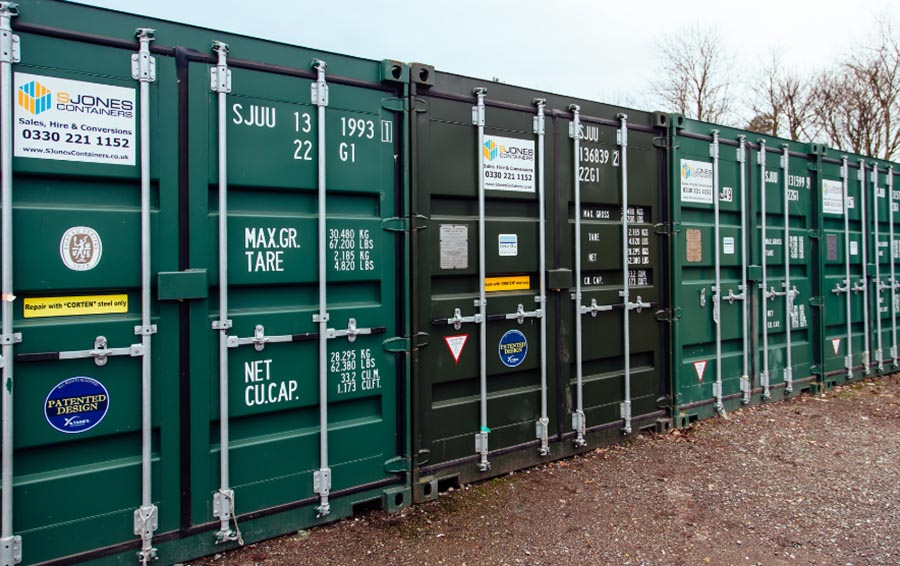Rising costs have led to an upsurge in both the sophistication and number of shipping container scams. Here Andrew Jones, Managing Director at S Jones Containers, outlines a number of ways to try and avoid being scammed.
We have recently seen an increase in unscrupulous scam artists offering containers at reduced prices that simply never arrive. These days scam artists are clever enough not to offer prices that are ‘too good to be true’ with prices that are quite close to the normal market, which makes scams harder to spot. Here are 8 ways to spot and avoid a scam container.
1. Are they who they say they are?
It’s becoming increasingly common for scammers to use an existing company’s name, or very similar sounding one, stealing logos and identities to make themselves seem official. Some will even go so far as to provide a spoof quote, adding their own contact details which invariably stop working once payment has been made. The way they do this is to copy a quote they have had from a genuine supplier and then corrupt the contact details to their own.
Check a number of key sources to ensure the contact details you are offered are genuine. When trying to impersonate an existing business scam artists will use what may, at first glance, seem to be the correct email domain names e.g. @s.jonescontainers.co.uk, or @sjonescontainer.co.uk instead of the legitimate @sjonescontainers.co.uk. Cross check phone numbers on genuine company web sites (again, check the domain name is correct). For organisations that you were not previously aware of, search Companies House and review their filing history. If they are a genuine company they will have filed accounts and other key documents.
2. Are they using a third-party sales site?
Container scammers will often make use of websites such as Gumtree, Amazon, eBay and Facebook Marketplace to advertise fictional containers. A detailed look at seller profiles will often identify red flags, such as suspect reviews and limited background details. Do they have an official company website and if so are the contact details on that site the same as the selling page? You must contact the company selling the containers directly to ensure you are not looking at a hoax product listing.
3. Are they asking the right questions?
Shipping containers by their nature are big, bulky and worth some consideration when it comes to transport. If the seller is only interested in securing your card details, it’s a sure-fire sign of a scam.
However, we are now finding that some scammers have done their homework. They will have made enquiries to genuine companies in order to learn what questions to ask and what areas to cover, like delivery issues, or container uses. Do not rely on what feels like a real conversation alone to be sure you are dealing with a real company.
4. Always Contact the company directly
Similarly to bank scams, containers scammers will often try to isolate their victims taking them away from official communication channels. Going straight to the company’s official website for telephone numbers, contact forms and email addresses, rather than clicking links in email chains is the best way of counteracting this. Fortunately, the UK container industry is relatively small and close knit, so if you do come across an organisation that you’re not quite sure of, speaking directly to an established supplier will soon reveal whether a company is fake or not.
Also, we are quite a friendly group and no company will be upset if you just want to phone and check. It is better to be safe than sorry.
5. Is the price too good to be true?
Container prices are determined by global manufacturing trends and complex logistic requirements. Whilst prices in the market place are always changing, if it seems too good to be true and is way below other quotations that’s often because it is. What can seem like an absolute steal of a deal, or even just a bit cheaper than quotes obtained directly, could turn out to be a complete waste of thousands of pounds when the container you have paid for never arrives.
6. Check their general online presence
Bear in mind that scams can be sophisticated, so just because the company has a good-looking website might not mean they are legitimate. Do they have a wider and convincing presence on business social media sites, such as LinkedIn, Facebook and Twitter? Do they have reviews? No reviews, or all perfect 5-star reviews within a couple of days can be a warning sign.
7. Report a Scam
Attempted scams can be flagged via sites like Action Fraud. Whilst not an official crime report, it does mean the police are more aware of fraudulent activity. You should also report crimes in order to obtain a crime number and allow the police to catch the perpetrators.
8. Professional transparency
To help further combat scams we’ve created a new webpage Doing Business With S Jones Containers, which includes an up-to-date list of all of our account managers. Ordering directly through an established company’s website or telephone line is without doubt the best way to avoid a scam.
Scammers are a plague on many industries and unfortunately the container industryis no different. While scam artists will never be eradicated completely, at S Jones Containers we want to do all that we can to help businesses, organisations and the general public to avoid being scammed.
S Jones Containers is one of the oldest and most respected shipping container companies in the UK. The family run business has been in continuous operation for more than 100 years and prides itself on both its professionalism and exacting standards.






